Microbiological findings in patients with febrile neutropenia
Keywords:
Neutropenia/microbiology, neutropenia/diagnosis, neoplasms/complicationsAbstract
Introduction: Febrile neutropenia is a common complication of chemotherapy in patients with cancer and an important proportion of them are infected. Half the number of patients with febrile neutropenia have a microbiologically identified focus. We present the microbiological findings in patients with febrile neutropenia at the Instituto Nacional de Cancerología.
Materials and methods: Through an antibiotic surveillance program in the first quarter of 2003, patients with clinical diagnosis of febrile neutropenia were identified. Positive microbiological cultures of these patients were followed and analized with the help of the WHONET software.
Results: 128 patients with febrile neutropenia who received antibiotics were followed. 38% of them were from the pediatric service. 83 cultures with potentially infectious microorganisms were obtained from 45 patients. Gram-positive cocci were the most common finding, specially coagulase-negative Staphylococci. Among the Gram-negative bacilli, E. coli and K. pneumoniae were frequently found. Fungi represented 12% of the microorganisms. Antimicrobial resistance rates were high among isolated bacteria.
Discussion: At the Instituto Nacional de Cancerologia, Gram-positive cocci were the most common microbiological finding. Broad-spectrum antibiotic coverage should be used in this high-risk population. A close surveillance of antimicrobial resistance should be maintained.
Author Biographies
Jorge A. Cortés, Instituto Nacional de Cancerología
Grupo de Infectología, INC
Sonia I. Cuervo, Instituto Nacional de Cancerología
Grupo de Infectología, INC
Patricia Arroyo, Instituto Nacional de Cancerología
Grupo de Microbiología, Laboratorio Clínico, INC
Ruth Quevedo, Instituto Nacional de Cancerología
Grupo de Microbiología, Laboratorio Clínico, INC
References
Hughes WT, Armstrong D, Bodey GP, Bow EJ, Brown AE, Calandra T et al. 2002 Guidelines for the use of antimicrobial agents in neutropenic patients with cancer. Clin Infect Dis 2002;34(6): 730-751. https://doi.org/10.1086/339215
Bodey GP Overview of the problem of infections in the immunocompromised host. Am J Med 1985; 79(5B): 56-61. https://doi.org/10.1016/0002-9343(85)90129-9
Chatzinikolaou I, Abi-Said D, Bodey GP, Ralston KV, TarrandJJ, Samonis G. Recent experience with Pseudomonas aeruginosa bacteremia in patients with cancer: Retrospective analysis of 245 episodes. Arch Intern Med 2000;160(4):501-509. https://doi.org/10.1001/archinte.160.4.501
: Gaytan-Martinez J, Mateos-Garcia E, Sanchez-Cortes E, Gonzalez-LlavenJ, Casanova-Cardiel LJ, Fuentes-Allen JL. Microbiological findings in febrile neutropenia. Arch Med Res 2000;31(4):388-392.
https://doi.org/10.1016/S0188-4409(00)00080-1
Haupt R, Romanengo M, Fears T, Viscoli C, Castagnola E. Incidence of septicaemias and invasive mycoses in children undergoing treatment for solid tumours: a 12-year experience at a single Italian institution. Eur J Cancer 2001;37(18):2413~2419. https://doi.org/10.1016/S0959-8049(01)00274-X
Viscoli C, Castagnola E. Treatment of febrile neutropenia: what is new? Curr Opin Infect Dis 2002;15(4):377-382. https://doi.org/10.1097/00001432-200208000-00004
Cordonnier C, Buzyn A, Leverger G, Herbrecht R, Hunault M, Leclercq R etal. Epidemiology and risk factors for Gram-positive coccal infections in neutropenia: toward a more targeted antibiotic strategy. Clin Infect Dis 2003;36(2):149-158. https://doi.org/10.1086/345435
Weinstein RA. Nosocomial infection update. Emerg Infect Dis 1998; 4(3): 416-420. https://doi.org/10.3201/eid0403.980320
Giamarellou H, Antoniadou A. Infectious complications of febrile leukopenia. Infect Dis Clin North Am 2001;15(2):457-482. https://doi.org/10.1016/S0891-5520(05)70156-2
Jagarlamudi R, Kumar L, Kochupillai V, Kapil A, Banerjee U, Thulkar S. Infections in acute leukemia: an analysis of 240 febrile episodes. Med Oncol 2000; 17(2): 111-116. https://doi.org/10.1007/BF02796205
Gencer S, Salepci T, OzerS. Evaluation of infectious. etiology and prognostic risk factors of febrile episodes in neutropenic cancer patients. J Infect 2003;47(1):65-72. https://doi.org/10.1016/S0163-4453(03)00044-6
Wisplinghoff H, Seifert H, Wenzel RP, Edmond MB. Current trends in the epidemiology of nosocomial bloodstream infections in patients with hematological malignancies and solid neoplasms in hospitals in the United States. Clin Infect Dis 2003;36(9): 1103-1110. https://doi.org/10.1086/374339
Castagnola E, Garaventa A, Viscoli C, Carrega G, Nantron M, Molinari C et al. Changing pattern of pathogens causing broviac catheter-related bacteraemias in children with cancer. J Hosp Infect 1995; 29(2):129-133.
https://doi.org/10.1016/0195-6701(95)90194-9
Ramírez LM, Villamizar NB, Hernández M, Sierra M, Aristizábal MA, Peña J et al. Episodios de neutropenia febril en niños con neoplasias malignas. Infectio 2003;7(3):137-146.
Cortés JA, Cuervo SI, Botero CP, Bermúdez D, Arroyo P, Rodríguez E et al. Características clínicas de los pacientes con cáncer con infecciones por bacterias productoras de beta-lactamas de espectro extendido, INC, Bogotá, 2002 (resumen). Infectio 2003;7(2): 100.
Leal AL, GREBO. Resistencia antimicrobiana en hospitales de tercer nivel en Bogotá 2001 - 2002 (resumen). Infectio 2003;7(2): 108.
Maschmeyer G, Braveny 1. Review of the incidence and prognosis of Pseudomonas aeruginosa infections in cancer patients in the 1990's. Eur J Clin Microbiol Infect Dis 2000;19(12):915-925. https://doi.org/10.1007/s100960000410
Bodey GP, Rolston KV. Management of fever in neutropenic patients. J Infect Chemother 2001;7(1 ):1-9. https://doi.org/10.1007/s101560170027
How to Cite
Downloads
Downloads
Published
Issue
Section
License
Todos los derechos reservados.




